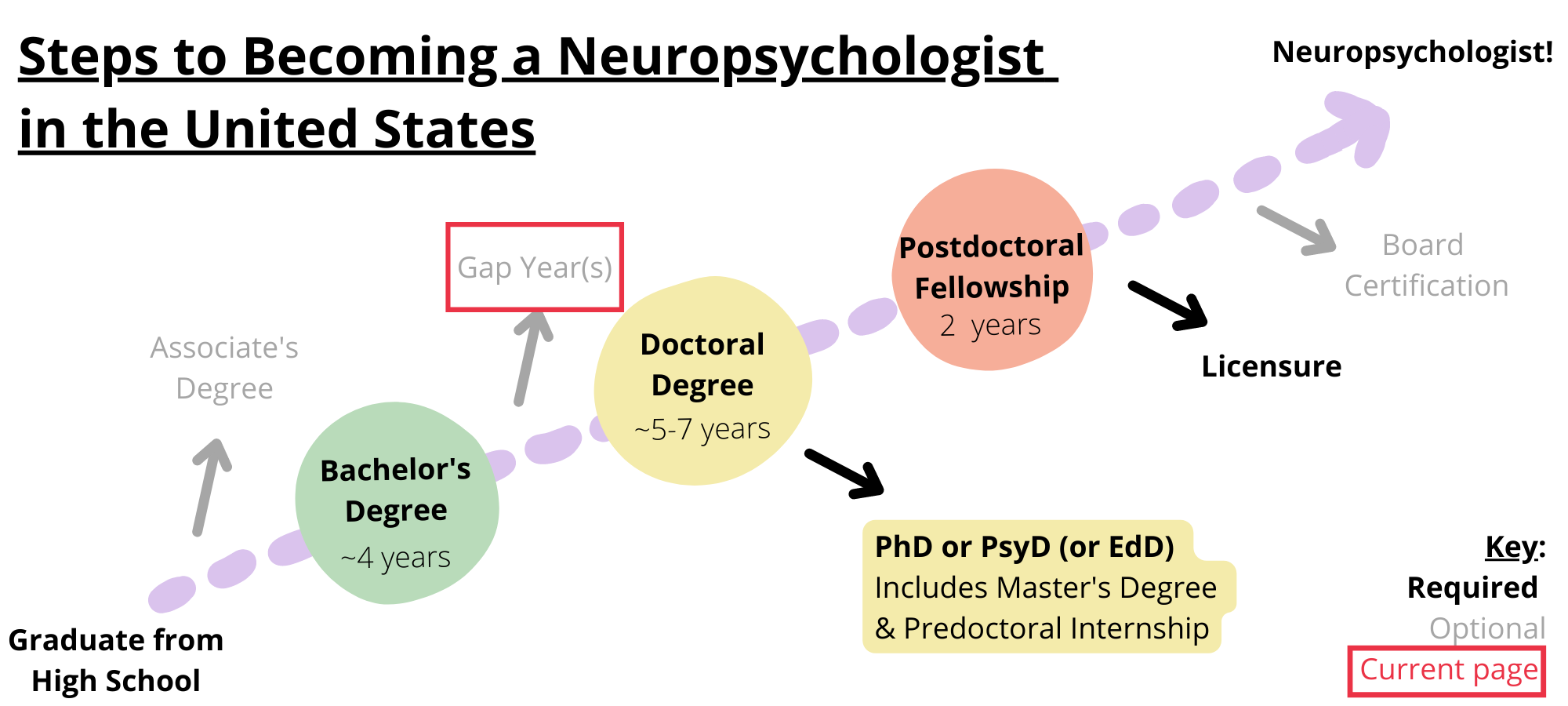
Gap Year(s)
A gap year is time taken off between completing your undergraduate degree and your doctoral degree. Taking this time off is not required, but it is common. During gap year(s), students may pursue a terminal Masters degree, work full-time as a research coordinator or psychometrist, or volunteer to get more experience in psychology. Some applicants also work in non-psychology related fields for several years before deciding to pursue a doctoral degree. Whatever your path, there are things you can do to maximize your gap year(s) to prepare for doctoral training in neuropsychology.
Click on the tabs below to learn more about the different paths you can pursue during gap year(s):
What is a terminal Masters degree?
A terminal Masters degree is a graduate degree that does not directly lead into doctoral coursework. This is in contrast to an “en route Masters degree,” which is obtained as part of doctoral studies. Terminal Masters degrees in psychology typically requires a bachelor’s in psychology or related field (human services, counseling, biology), or substantive coursework in these areas. Many Masters programs also require a general and/or psychology GRE.
Masters programs in psychology are not currently accredited, but may be in the future. Programs can be MA or MS, and it’s OK to have a range of specializations (i.e., some degrees are in health psychology vs. clinical psychology, biological psychology/biopsychology, experimental psychology, or even general psychology).
How do I choose a Masters program?
Look for programs that are affiliated with known private or state universities/colleges and that have a smaller class size (20 or less). For-profit programs that enroll large amounts of students (more than 20 per year) are not ideal because you may get less individualized mentoring and support.
When choosing a Masters program, look at the coursework offered and not just the type of degree. Is there a cognitive psychology course? Social Psychology? Developmental psychology? Abnormal psychology? Statistics and research methods?
You also want to consider the research involved. Is a thesis required? Is this thesis a literature review, program development, or actual original research? The latter is preferred, as this experience will make you more competitive when applying to doctoral programs.
Exposure to clinical work, such as in a Clinical Counseling Masters program, is great, but not necessarily a requirement.
What else should I know about terminal Masters degrees?
In the final semester of your Masters program, or after graduating, you would then apply to doctoral programs. Keep in mind that some coursework or research requirements must be repeated. Keep all syllabi, and a copy of your thesis; you can submit these for credit consideration at your doctoral program.
Because previous research experience is often a requirement to apply to doctoral programs in clinical psychology, getting experience as a paid researcher is a great way to spend your gap year(s). Possible job titles include Research Assistant, Research Coordinator, or Lab Manager.
Looking for a paid research position? Check out the predoctoral psych jobs wiki, the post-grad lab positions wiki, and the PREDOC full-time job postings page. Paid research positions are also often posted on general recruiting websites such as Indeed and Glassdoor.
Find additional post-baccalaureate research opportunities here:
How many gap years are typical? What do you actually get out of a gap year? Watch the video below to hear from current graduate students about their gap year experiences!
